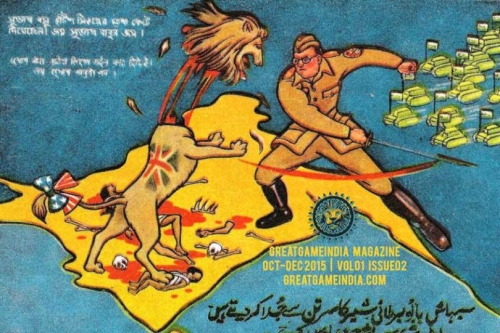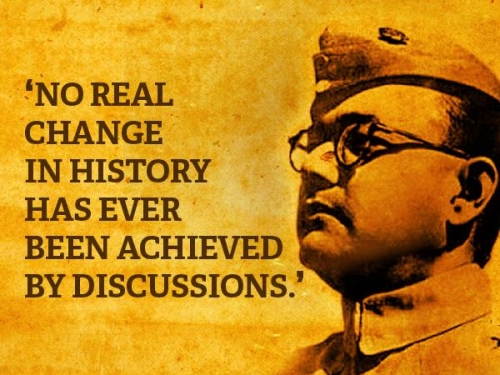It was more than seven decades ago that the United States dropped the world’s first atomic bomb on Japan, obliterating the city of Hiroshima, killing 140,000 people and ushering in a new era of nuclear conflict.
Today President Barack Obama has become the first sitting US president to visit Hiroshima. Obama made it clear in his interview with Japan’s public broadcaster NHK that he would not offer an apology and Japan also said it would not seek one.
The majority of Americans have long viewed the two atomic bombings as necessary in bringing the war to an end and therefore saving even more lives, although this argument has been widely queried by historians.
General Douglas MacArthur, Commander of US Army forces in the Pacific, stated on numerous occasions before his death that the atomic bomb was completely unnecessary from a military point of view: “My staff was unanimous in believing that Japan was on the point of collapse and surrender.”
General Curtis LeMay, who had pioneered precision bombing of Germany and Japan (and who later headed the Strategic Air Command and served as Air Force chief of staff), put it most succinctly: “The atomic bomb had nothing to do with the end of the war.”
Was Hiroshima Necessary? Why the Atomic Bombings Could Have Been Avoided By Mark Weber from The Journal of Historical Review, May-June 1997 (Vol. 16, No. 3), pages 4-11.
So why were the bombs dropped on Japan?
To this day no one apart from the GreatGameIndia team have brought to light the connection between the decision to bomb Hiroshima and Nagasaki to Subhas Chandra Bose’s plot the bring down the British Empire.
World War II illustration created by the Japanese. Subhas Chandra Bose backed up by Japenese tanks is shown beheading the British Lion feasting on bones of dead Indians.
Although many in India, scholars besides, know about Netaji Subhash Chandra Bose, we shall include a couple of paragraphs below to put the matter in the context of international geopolitics. In World War II, the case for dropping two bombs on Japan was not an impeccable one, and many reasons are likely to be hidden from the public eye.
Could the equations of the Anglo-British involving a possible defeat in the Indian theater by a Bose-Japan combine have been a part of the decision process?
Bose was able to flee house arrest in Calcutta and go to Germany. Studying the German viewpoint of the international politics gave him an understanding that Gandhi and Nehru may not have had. In a very daring trip he would go further on to Japan, spend a few years there and have an audience with the Premier. He would subsequently land in Burma and take control of the Burmese Indian National Army. Upon learning that Bose had come to Burma and was raising an army, the Indian soldiers of the British army switched sides in favor of their countryman. Bose was thus able to raise an army of about 40,000 strong, equipped with arms from Japan. In addition, the Emperor of Japan committed about 100,000 Japanese troops and some air squadrons for his assistance. With this formidable combine, he stood a good chance of marching on to Delhi. The 100,000 Japanese troops would eventually back down, but Bose resolved to continue the fight. He occupied the Andaman and Nicobar islands, Nagaland, Mizoram, Assam and was about to enter Bengal. From the vantage of the Andaman and Nicobar islands, the Indian National Army had effectively tied up Mountbatten in Ceylon, and he was unable to move.

World War II illustration created by the Japanese. Subhas Chandra Bose backed up by Japenese tanks is shown beheading the British Lion feasting on bones of dead Indians.
Bose had a brilliant strategy. A main force was to march on to Delhi. This would however be aided by three other forces, each of which would have first performed the task of destroying the British hold over three major ports – Calcutta, Vishakapatnam and Chennai as well as the Dutch control of ports at Machilipatnam and Yanam. The unit landing in Calcutta would join the units from Nagaland and Assam towards Delhi, while the units from Vishakapatnam and Chennai would march towards Bombay.
The conquest of these five cities, to be completed in two weeks, would have effectively ended British rule in India, cutting it off from the sea. But Bose would follow the same moral principle that Napoleon had: “Never my sword against my own people”. Around the end of July 1945 he dropped leaflets over the cities of Madras, Vishakapatnam and Calcutta, requesting citizens to leave so that the INA could bomb these coastal towns prior to landing. He set a two week deadline, after which he would start the attack.
Subhash planned to strike against the British and it is very likely that they would have been unable to face an attack by the INA. On 6 August 1945, before the deadline set by Bose was to expire, Hiroshima would be bombed, and then on 9 August, the second bomb would be dropped on Nagasaki. After the Japanese surrender, Subhash evacuated the Andaman on 15 August 1945, in a plane with Japanese markings. This plane was shot down by American gunners over Manila, en-route to Tokyo. Three POWs were taken in this crash. In accord with the Geneva convention, they stated their rank, name and age. The American captors did not realize who their prisoners were. So they telegraphed the information to the British, who responded “Discard the Baggage”. The Americans GIs refused to obey this instruction. The British advised them to hand over the three prisoners to Stalin’s red army.
Excerpt from the article Bose’s Plot To Bring Down The British Empire.
What follows after Bose’s plane was shot down is explained in detail in our article titled The Heroic Saga: The Escape, Exile & Death Of Bose.
The impact Bose and the INA had on the events in British India has since been downplayed by all the power groups that have controlled India, and not much is taught in modern history about the role played by this very great man.
Help keep our research going. Subscribe to GreatGameIndia – India’s only quarterly magazine on Geopolitics & International Affairs.
Read all articles related to Subhash Chandra Bose here – #NetajiFiles





 del.icio.us
del.icio.us
 Digg
Digg
Les commentaires sont fermés.